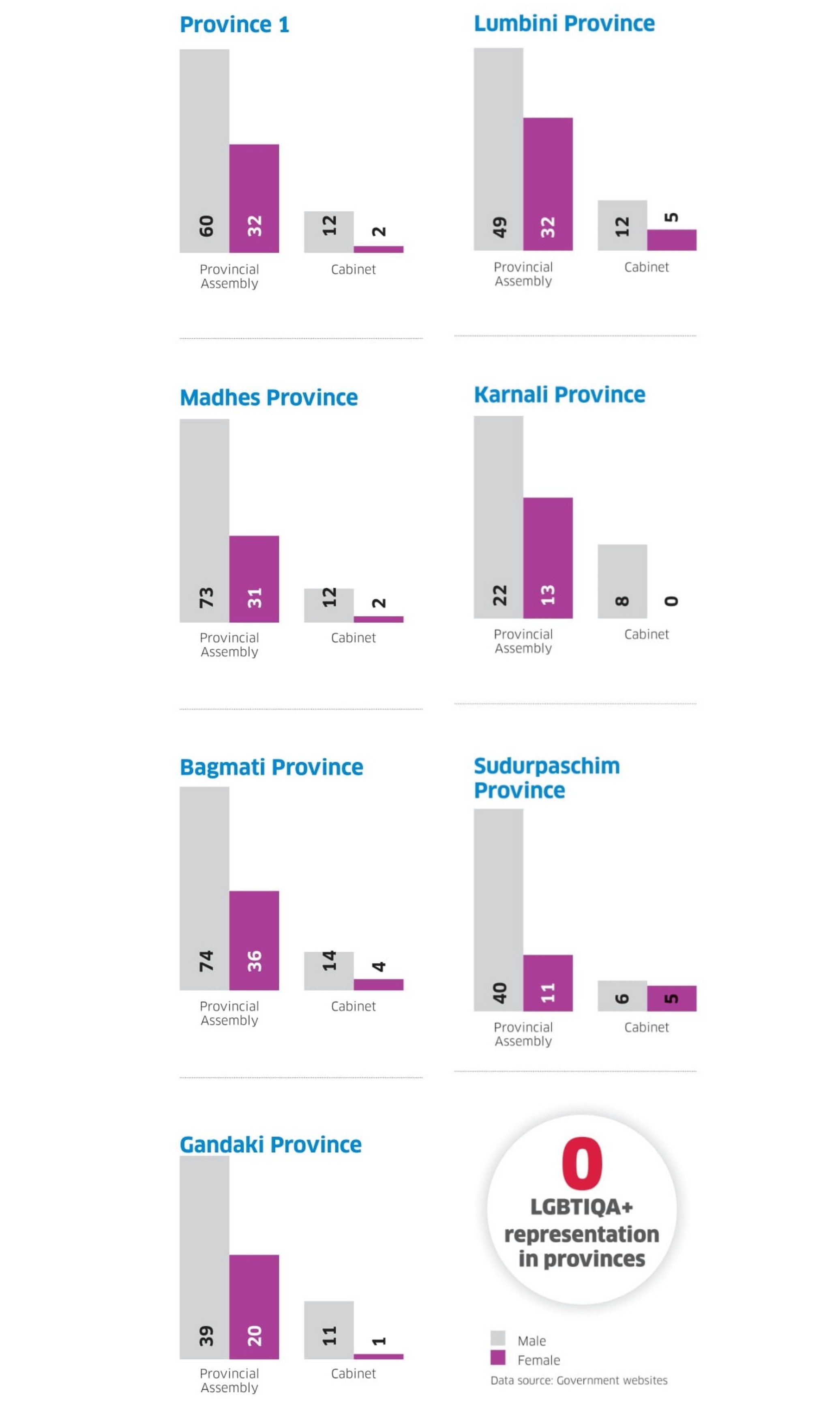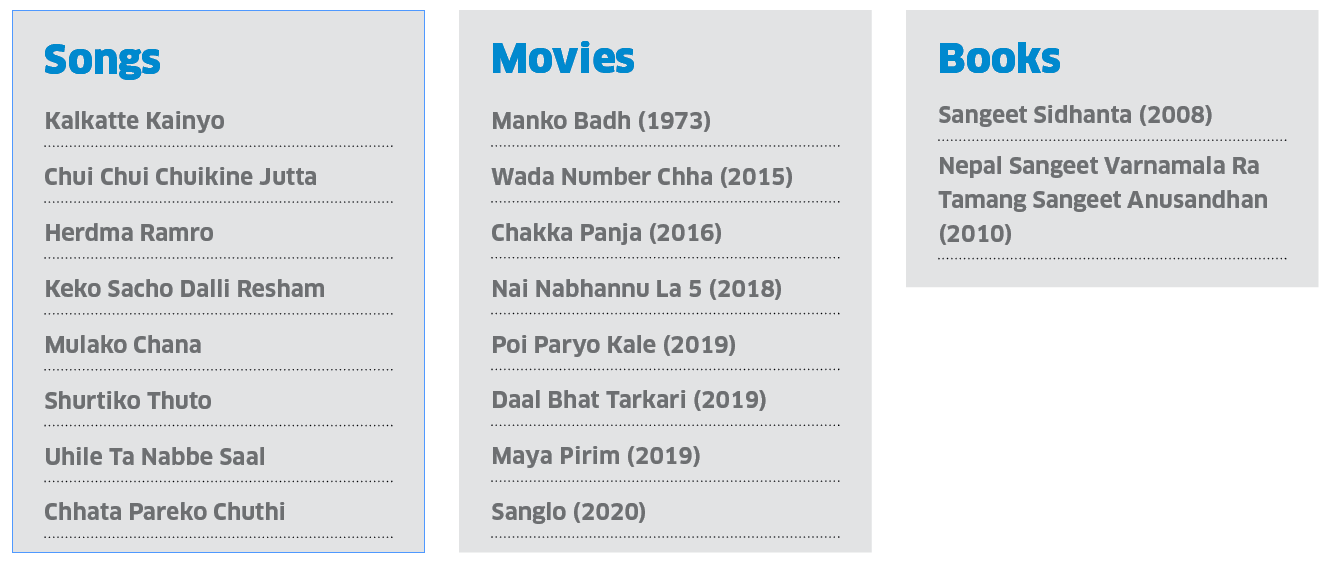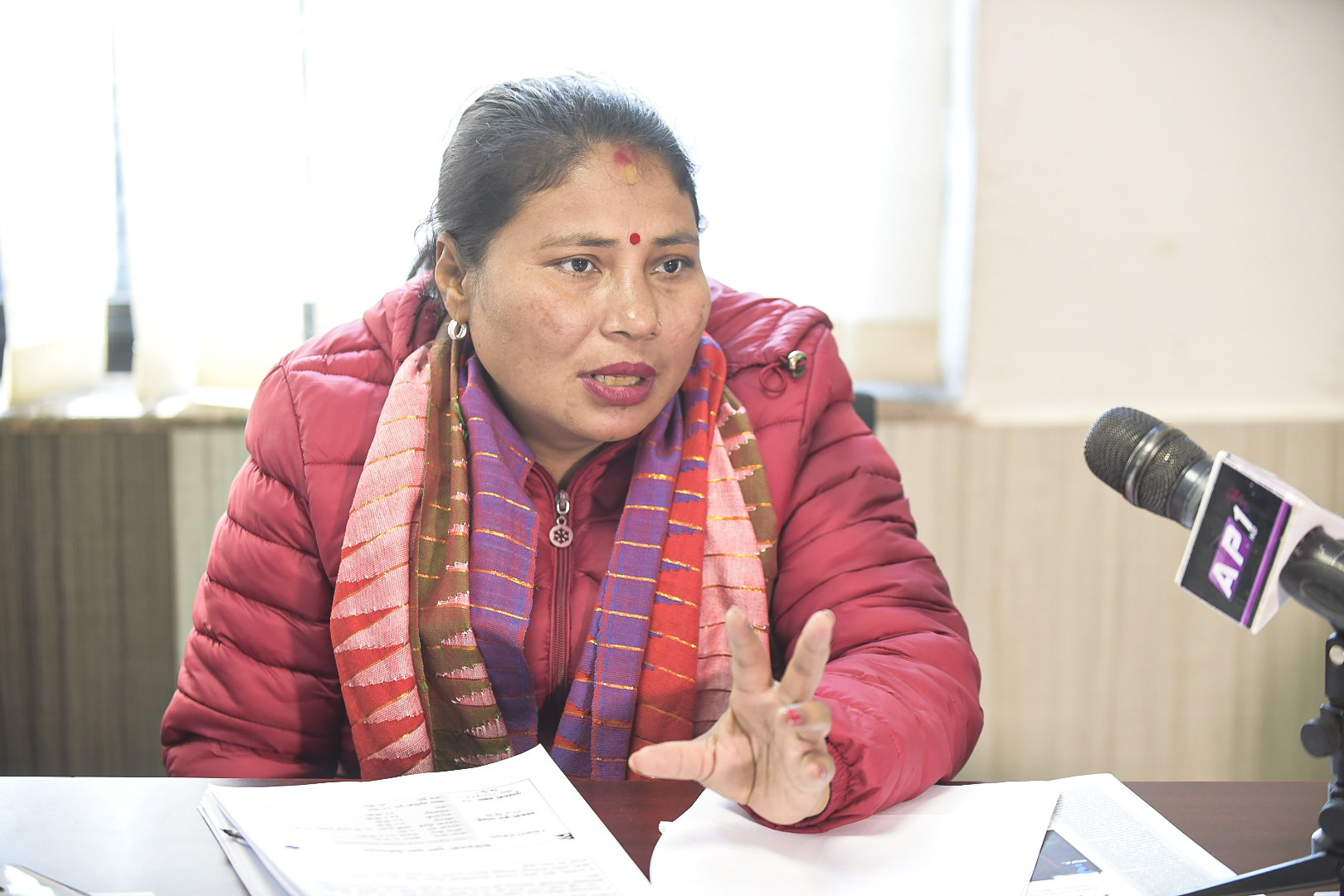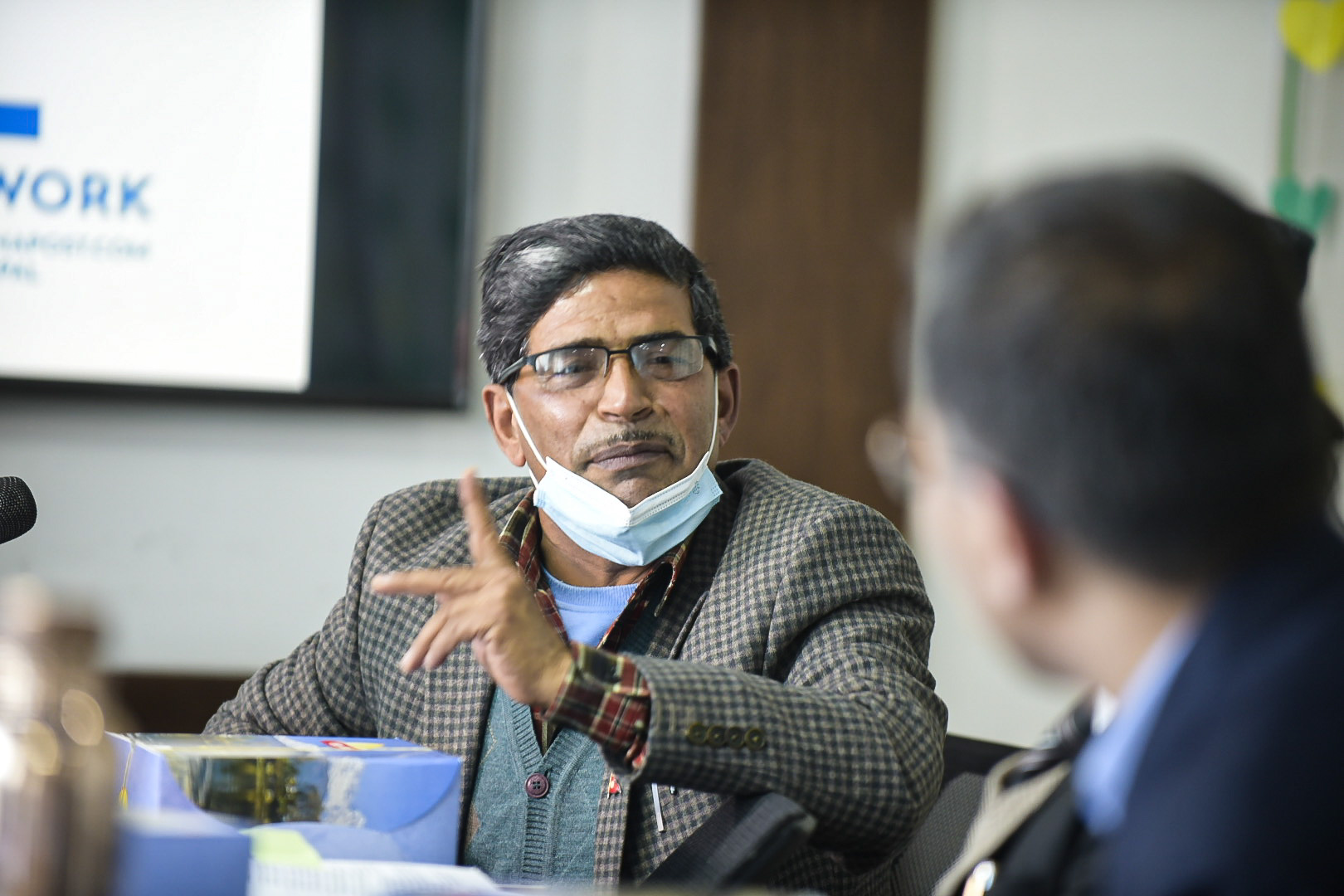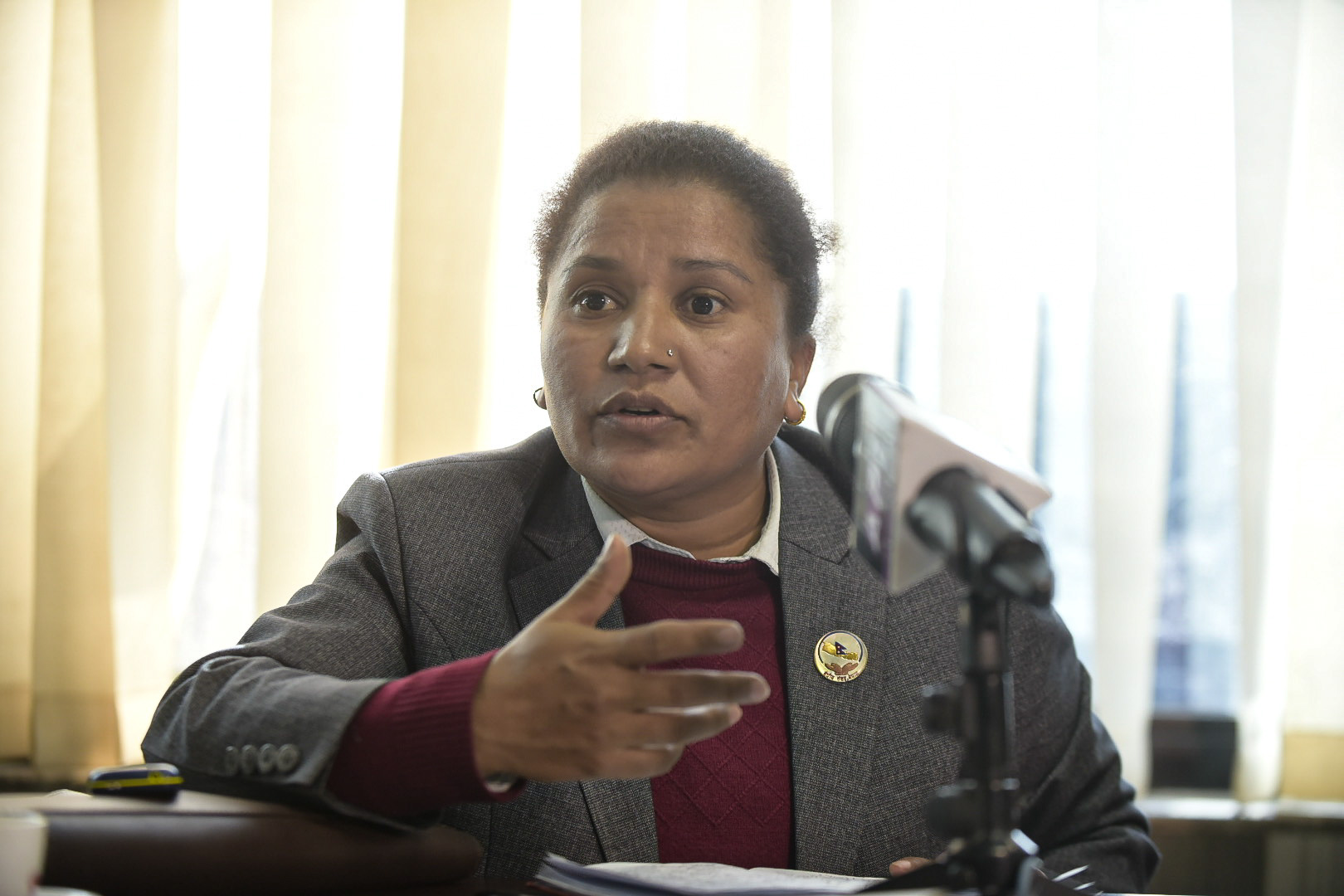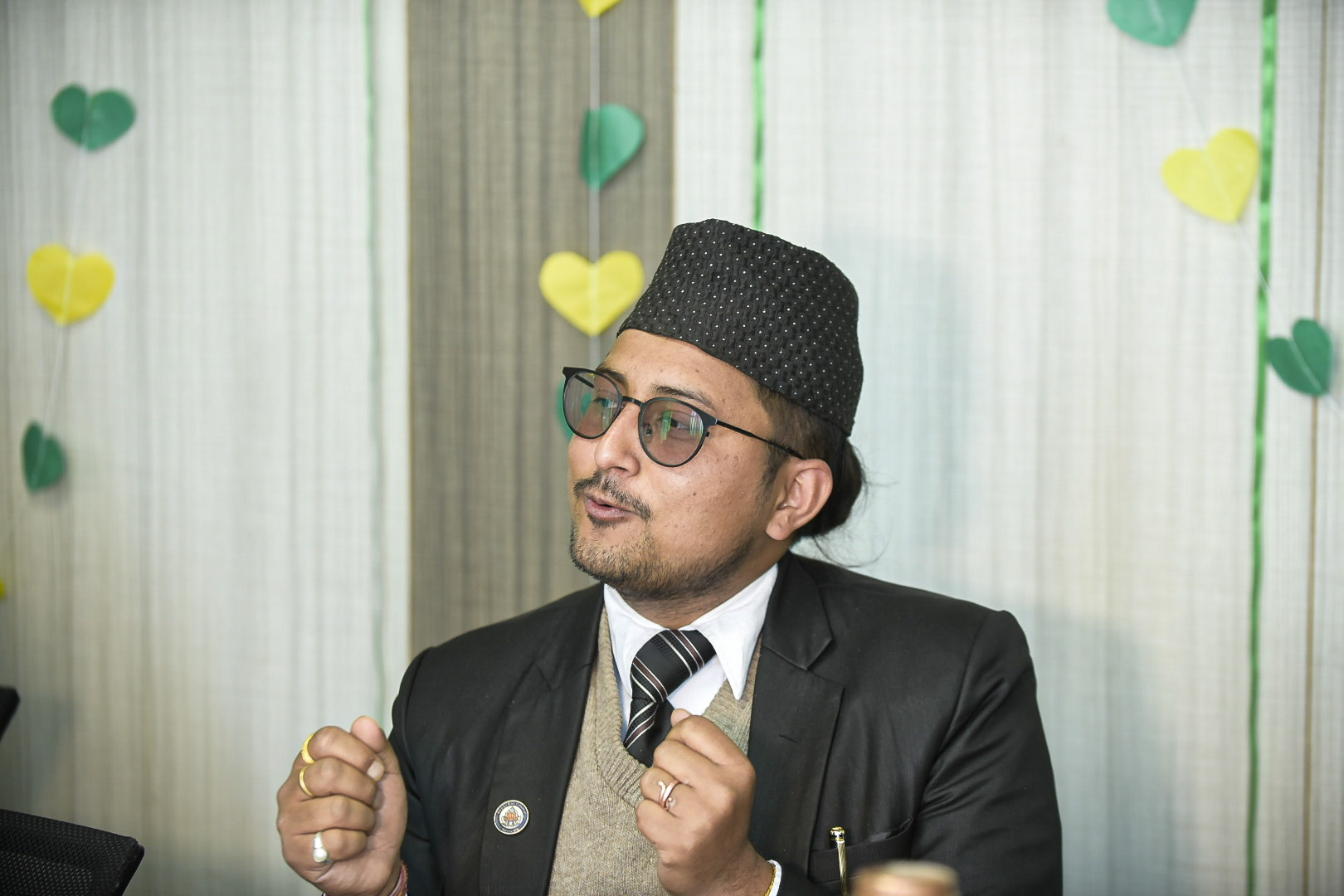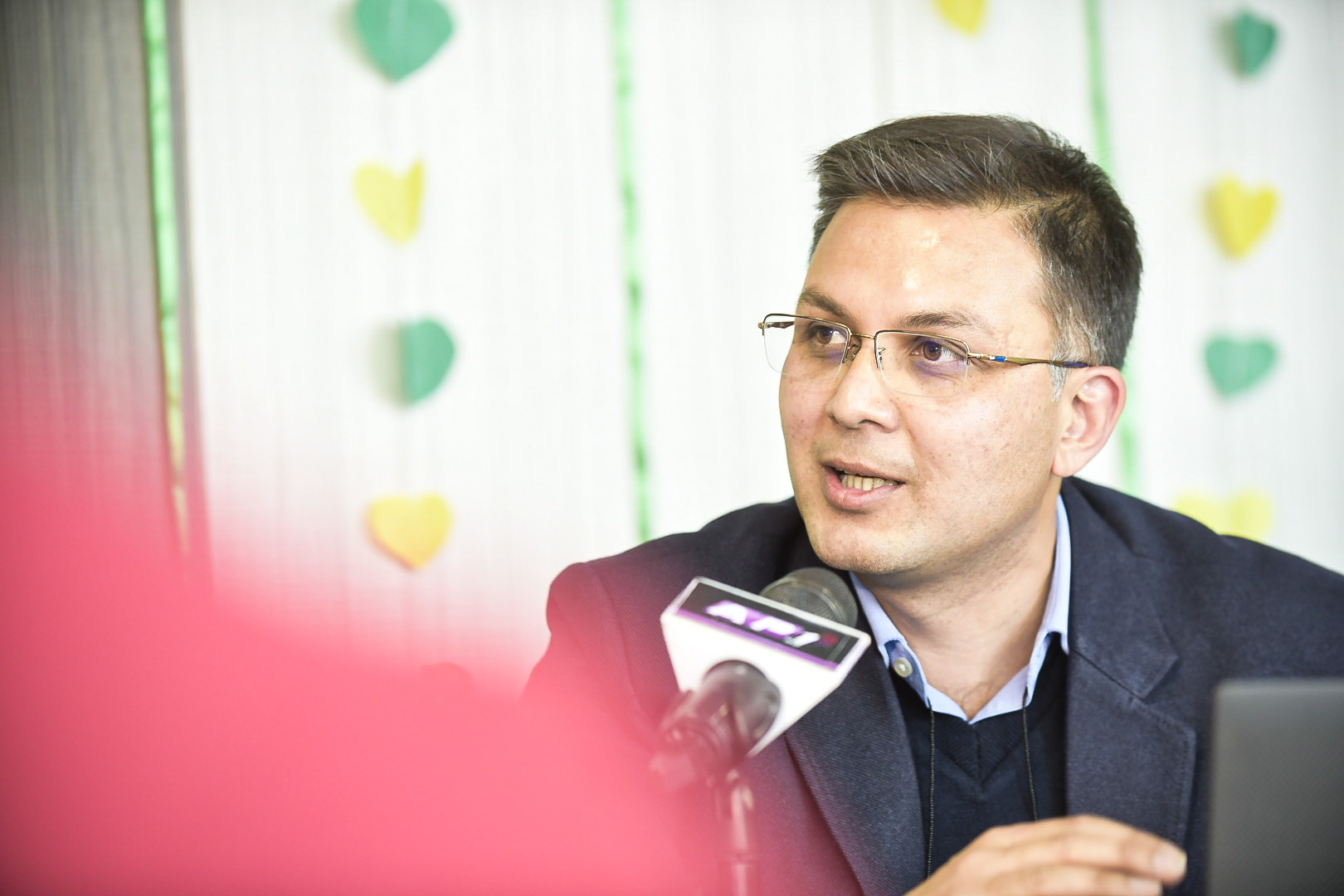Few women in federal, provincial executive bodies
Females make up 51.04 percent of Nepal’s population, but their representation in government bodies is much lower. This means their issues and concerns are rarely addressed.
Every year on March 8, various government agencies working on women rights and empowerment mark the International Women’s Day. They announce campaigns and programs for women rights and representation and yet they invariably fail to achieve the desired results.
Nepal’s constitution mandates a minimum 33 percent women representation in legislative bodies. As a result, the federal parliament fulfills the women representation criteria—33.7 percent in the House of Representatives and 37.28 percent in the National Assembly—and so do the provincial assemblies.
But in executive bodies, women are heavily underrepresented. In the federal council of ministers, women representation is 26 percent; provincial ministries are also dominated by male ministers.
This shows that significant (if still inadequate) women’s representation in legislative bodies owes solely to constitutional provisions and not a commitment to leveling the playing field.
Province 1 and Madhes have 14.28 percent women representation in their cabinets, whereas Bagmati and Lumbini have 22.22 percent and 29.41 percent women representation respectively. In Gandaki province, women ministers comprise eight percent of the cabinet and Karnali has no female minister.
While Sudurpaschim province has 45.45 percent women representation in the cabinet, its legislative assembly has just 21.56 percent women.
Bimala Nepali, lawmaker and member of Women and Social Affairs Committee of Parliament, says they have repeatedly urged the government to at least ensure a minimum threshold of women in the federal Cabinet, to no avail.
More men should take up women’s rights advocacy
Bimala Rai Poudel
Member of National Assembly
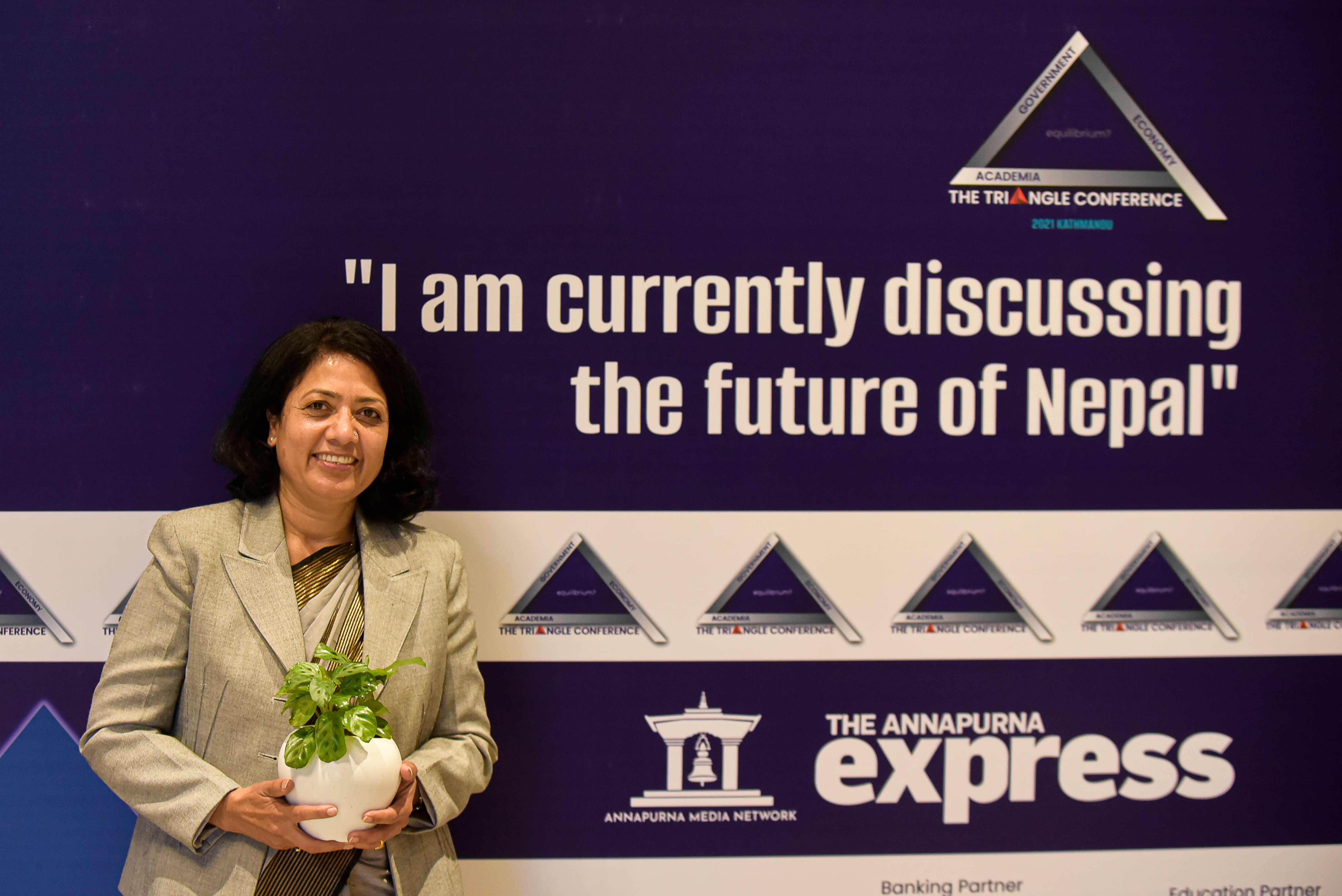
I ask for 51.04 percent women representation in every sector, in line with our population data. Currently, our legislative bodies have a decent number of female representatives, and we can raise our issues more effectively. But we also need men on our side. Gender equality should be a universal cause. To build an equal society, it is imperative that men take up the issues of women’s rights and representation.
Jayananda Lama obituary: A multi-talented artist
Birth: 27 July 1955, Sindhupalchok
Death: 23 February 2022, Bhaktapur
Jayananda Lama, who died aged 66 on February 23, was a man who wore many artistic hats: he was a singer, dancer, music scholar, movie producer, director and actor.
The voice behind ‘Kalkatte Kainyo’, a popular Nepali folk song, and ‘Keko Sacho Dalli Resham’, a ditty popularized among modern music listeners by blues-rock group Mukti and Revival, Lama initially started out as a dancer before making his name in music and acting.
Lama was a 12-year-old boy growing up in Sindhupalchok when he was discovered by Bhairav Bahadur Thapa, a veteran choreographer and dance scholar who was scouting for musicians and dancers from across the country.
The young Lama came to Kathmandu where he was schooled and trained under Thapa’s tutelage. He became a member of Bhairav Nritya Dal, the country’s first cultural troupe established by Thapa and playwright Balkrishna Sama. Lama’s contemporaries at Bhairav Nritya Dal included actor Hari Bansha Acharya and singer and musician Ram Thapa. The eclectic circle of friends, each talented in a different field of performance art, had a great influence on Lama. He also learned to sing and play musical instruments.
As a little boy, Lama participated in a national cultural competition organized to mark the 46th birthday of the then king Mahendra. His performance won him a consolation prize of Rs 1,000 and a deal to record four songs at Radio Nepal. His first song ‘Roko Manalai Bujhaune Ko Hola?’ was recorded in 1967.
The competition was a turning point in Lama’s life. His performance had impressed the king and other royal family members. After the show, King Mahendra and the crown prince at the time, Birendra, praised Lama and offered to pay for his studies. He would get to know the royal family more intimately in the future.
Lama continued his schooling and training at the Bhairav Nritya Dal. With his fellow dancers, singers and musicians, he toured different parts of the country and abroad for shows.
Lama had a BA degree in Music from Lalitkala Campus, Bhotahiti. After getting the degree, he got a job at Nepal Academy (Royal Nepal Academy at the time). He also became a music teacher for the then crown prince Dipendra.
While at the academy, Lama got his master's degree in Music from Allahabad, India. Not long after his return from India, he joined Radio Nepal with the intent of promoting Nepali folk songs and artists. At the Radio Nepal studio, Lama recorded his own numbers and promoted other folk musicians like Narayan Rayamajhi.
Artists who worked with Lama remember his collaborative spirit, humility and contribution to promoting and popularizing folk songs. He recorded more than 200 songs during his lifetime. His song catalog was instrumental in the launch of Music Nepal, the country’s first music company.
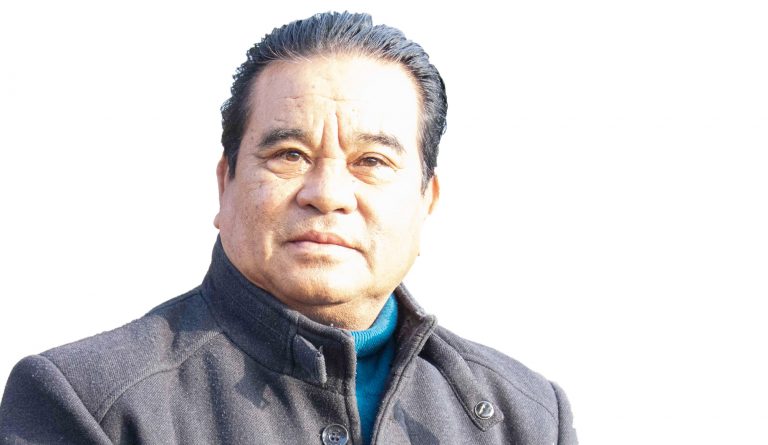
Lama also worked as a lecturer of music at Tribhuvan University for four years and traveled across Nepal researching and collecting local folk music. His research led him to write two related books. At the time of his death he was working on his third book, on Pingul script, the oldest Nepali folk music script.
A man of many talents, Lama was also an actor—a prolific one. Since his debut movie ‘Manko Badh’ (1973) he went on to appear in over 100 films and TV shows. Although he dabbled in producing and directing films and TV series, he was best known for his acting.
He was mostly cast in comic roles, which he portrayed deftly. The smash hits ‘Chakka Panja’ (2016), ‘Nai Nabhannu La 5’ (2018), and ‘Poi Paryo Kaley’ (2019) are among his popular films.
Lama had been making more TV and film appearances in recent years.
Although he participated in musical events and TV shows like ‘Nepal Lok Star’, a singing reality contest for folk singers, he had not recorded his own songs in decades. In several interviews, Lama had expressed his discontent with the current folk music scene. He had come to despise the brazen vulgarity seeping into modern folk songs in the name of producing commercial hits and he didn’t want to sing anymore.
He was all about preserving and promoting folk roots and traditions.
Lama did make a comeback from his long musical hiatus by releasing a song a couple of months ago before his death. In one interview he had even said that he had collected enough songs to keep crooning for the rest of his life.
Lama is survived by his wife and two sons.
Fast track, off track
In its Feb 22 press meet, Nepal Army insisted that work on the 72.5-km Kathmandu-Tarai fast track was on track despite a few hurdles. It assured things would pick up pace in the second half of 2022 and the project would be completed by Jan 2025. (The initial deadline was Sept 2021.) Yet ground realities suggest otherwise.
An ApEx team recently set out to document progress on the project, visiting many places along the 72.5km-track length. We spotted many problems. Many locals of Khokana in Lalitpur, the road’s starting point, are still vehemently against the project, insisting that money is not what they want. They say no amount of money can force them to give up their ancestral lands. Then in the stretch in Makawanpur district, we could see stumps of countless felled trees even as there was no other visible progress.
As economist and ex-Nepal Planning Commission member Chandra Mani Adhikari pointed out in a recent ApEx roundtable on the topic: “In 2009, JICA had estimated the project cost at Rs 86 billion. In 2022, the estimated cost has reached a staggering Rs 213 billion”. The cost, Adhikari adds, will continue to balloon if works are not expedited.
Also speaking at the roundtable, Semanta Dahal, a lawyer and researcher, said time had come to ask some hard questions. Given the paucity of progress in the past six years, “do we still think the army is the most suitable entity to build such an infrastructure project?” he asked.
This newspaper will try to capture multiple aspects of the project in its 10-part ‘InDepth’ series (of which the roundtable this week is the second part). The goal is to bring some clarity to this otherwise opaque endeavor.
ApEx roundtable on Kathmandu-Tarai fast track
ApEx recently hosted a roundtable with a group of experts on the Kathmandu-Tarai Fast Track Project. The objective was to understand the many aspects of the project—its current status, its cultural and environmental impacts, and the lessons we have learned from it. Here are excerpts of the opinions shared in the roundtable.

(Note: Nepal Army, which has been commissioned to develop the project, didn’t send its representative to the roundtable despite repeated requests.)
Aasha Kumari B.K.
Lawmaker and member of Development and Technology Committee of Parliament
In May 2021, army officials and our committee had officially discussed the fast track. That time local residents around project sites had complained to us that there was no one to listen to their concerns. So the committee had directed the army to build camps at different project sites to address local concerns. The army now has 10 such camps, which is a positive development. We are also planning another meeting with the army, as the residents living near the project sites have reported some new environment-related concerns. We have gotten reports of environmental damage and dust at project sites affecting the health of local residents.
And there is the issue of compensation. Nepal Army hasn’t been able to settle compensation for land acquisition in Khokana, Lalitpur, as some of its residents want to be compensated at updated land rates. This issue has become particularly thorny as some residents have already accepted compensation at previous rates. The army has asked the government for additional funds to resolve the land dispute. In our upcoming meeting, we will try to work out the best solution.
Dr Chandra Mani Adhikari
Economist and a former member of National Planning Commission
In 2009, JICA had estimated the project cost at Rs 86 billion. In 2022, the estimated cost has reached a staggering Rs 213 billion. The cost will continue to rise if works are not expedited. The most-used highway that connects Kathmandu with the Tarai is around 270 km. When the fast track comes into operation, it will shave off a distance of around 200 km. This will benefit us economically. We can expect commodity and fuel prices to come down with the fast track, largely because of lower transport costs. With the fast track in place, we can also use the dry ports at Birgunj and Chobhar to their maximum capacity.
Developed countries invest in infrastructure and connectivity projects, which they consider their economic lifelines as they give fast turnovers. We must learn from them and start investing in such projects.
I also doubt the decision to hand over the fast track to Nepal Army that has no experience of dealing with such mega-projects.
Parbati Kumari Bishunkhe
Lawmaker and member of Public Accounts Committee of Parliament
As Nepal Army did not have the necessary equipment and manpower to undertake the project alone, it hired other international companies to work on many of the project components. Complaints have been filed with the Public Accounts Committee that some of these companies were hired without following due process. The committee has already taken up this matter with the army. It has been reported that the army needed two companies to build the track’s inner channels, and invited tenders accordingly.
For the first channel, there were only two interested companies and one of them was selected. But on the tender for the next channel, 21 companies had applied. There have been complaints that the army prepared the Performance Qualification (PQ) questionnaire favoring one particular company, which ultimately got the contract.
We plan on inquiring into this as soon as parliament procedures stabilize.
Sanjay Adhikari
Public interest litigator for natural and cultural heritage
Khokana and Bungmati are ancient villages attached to the Newa civilization. The fast track project is endangering their cultural and historical significance. In the name of development, the government is trying to drive away the native Newa families who have been living there for ages.
The United Nations Declaration on the Rights of Indigenous Peoples, of which Nepal is a signatory, as well as our constitution, advocate for the rights of indigenous people. But we are not following them.
We have requested the National Human Rights Commission to intervene on behalf of Khokana and Bungamati residents, but to no avail.
Semanta Dahal
Lawyer and researcher
Nepal has to invest almost 13 to 15 percent of its GDP in infrastructure projects for the next two decades to meet its development goals. On highways and roads alone, we needed to allocate around $1.3 billion in 2020 but there was a gap in required financing. Going by this trend, we can estimate that the country will require $5.6 billion by 2025, and $7.5 billion by 2030. Will the government alone be able to allocate such large sums? No. So private investment is necessary to bridge the infrastructure gap if we want to develop mega roads and highways.
But the government has failed to create an investment-friendly climate. Except in hydropower, it has been unable to encourage private companies to invest in other public infrastructure projects despite the passing of the Public-Private Partnership (PPP) legislation. Separately, one thing we must ask based on time that has already elapsed since Nepal Army was assigned to develop the fast track in 2015 is: Do we still think it is the most suitable entity to build such an infrastructure project?
Nepal’s progress in wildlife conservation
WWF Nepal in 2021 ended its USAID-funded Hariyo Ban Program after 10 years. In this period, the program achieved several conservation milestones.
Nepal is on track to achieving the global goal of doubling its tiger numbers as it has recorded tigers at altitudes of 2,500 meters in the west and 3,200 meters in the east.
Similarly, the one-horned rhino count has hit a historic high with 752 counted last year (694 in Chitwan, 38 in Bardiya, 17 in Shuklaphanta and three in Parsa), in what was a 16.5 percent increase from 2015. Nepal also collared two additional snow leopards in Shey Phoksundo National Park.
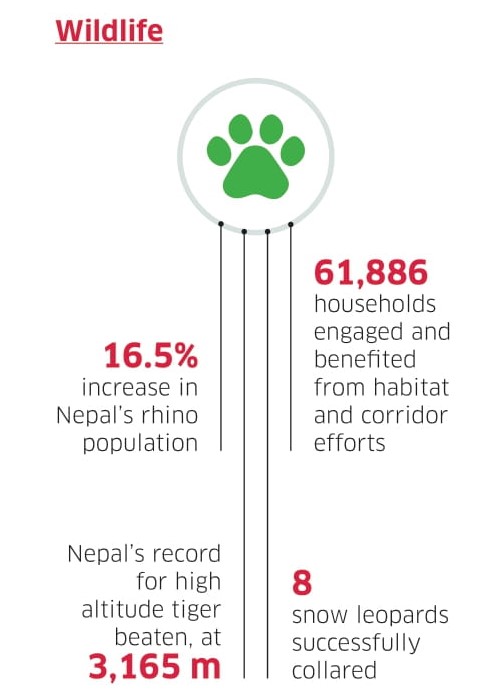
When covid pandemic led to illegal logging, forest product harvest and wildlife crimes, the program in partnership with government, local communities and stakeholder renewed its efforts to protect forests and wildlife. WWF Nepal alone contributed to the protection of 161,813 hectares of forests by strengthening Forest Conservation Areas (FCA). Also, the authorities concerned maintained guard posts, fire lines, revised policy assistance, and held transboundary meetings with the Indian side to develop a cross-border sharing mechanism.
Efforts were also initiated to reduce fuelwood as the primary source of energy, as it hampers the environment along with the health and safety of communities.
Climate change was another field where the Hariyo Ban Program was active. Climate change has affected multiple small communities in the form of climate-induced disasters such as flooding and riverbank erosion.

To address these problems, the Climate Change Strategy and Action Plan (CCSAP) for each province of Nepal is currently being prepared to localize the National Climate Change Policy that aims to make a transition to 100 percent renewable energy.
Overfishing, proliferation of aquatic invasive species, unmanaged sand and gravel mining, pollution, encroachment, siltation, unplanned infrastructure development and ground water extraction continue to threaten freshwater ecosystems. To cope with these challenges, seven artificial wetlands were constructed and restored in the western Tarai. These wetlands are expected to retain around 200 million liters of underground water.
There has also been work on strengthening indigenous people and local communities’ access to natural resources and ensuring equitable benefit sharing mechanisms by creating transparent, participatory, inclusive governance mechanisms for sustainable management of natural resources.
Prem Krishna Pathak obituary: A lifelong revolutionary
Birth: 28 April 1940, Dillibazar
Death: 6 February 2022, Dhumbarahi
Prem Krishna Pathak, a political revolutionary and trusted aide of BP Koirala during the anti-Panchayat movement, died on February 6. He was 82. In his political career, Pathak was with various political parties, including Nepali Congress and CPN-UML. He was a member of the Janata Samajbadi Party Nepal at the time of his passing.
Besides politics, Pathak also practiced law and in 1977 served as the president of the Supreme Court Bar Association.
Born during the Rana rule, Pathak was only 10 when he took part in his first political protest against the oppressive regime. The brutality displayed by the Ranas against the champions of democracy had left an indelible impression on his psyche. Young Pathak learned the importance of revolution when the 104-year absolute Rana rule ended in 1951, after which he would become a lifelong revolutionary.
He cut his teeth in politics as a Nepali Congress cadre. After king Mahendra launched a coup on 15 December 1960, he was arrested along with Koirala and several other NC members. Pathak was released after months of imprisonment, even while Koirala would remain in jail until 1968 before being forced into self-exile in India.
Following his release, Pathak continued to take part in the anti-Panchayat movement. Political parties were banned and their leaders were either forced underground or arrested. It was Pathak who united different student unions under the banner of Janajagriti Sangh, which further spurred the democratic movement. Under his command, the students of the movement interrupted a gathering of the pro-Panchayat students. The incident encouraged more students to join anti-Panchayat protests.
Pathak became a respected NC member, liked and trusted by party cadres and leaders alike. It was at his Old Baneshwar home that party leaders including Koirala used to surreptitiously meet.
A true revolutionary, Pathak was never content; he was always in need of a cause to fight for or against. Disaffected with the NC, he left the party several times, including in 1979, protesting Koirala’s policy of national reconciliation.
In the 1990 people’s movement, Pathak was at the forefront of the protests. He then made a radical switch by joining a communist force, Communist Party of Nepal (Marxist-Leninist), which later became Communist Party of Nepal (Unified Marxist-Leninist).
But Pathak would then go on to leave the CPN-UML over the party’s position on the issue of identity and representation. He quit along with the faction led by Ashok Rai to form the Samajbadi Party, which itself has undergone many divisions and is today known as Janata Samajbadi Party Nepal (JSPN).
The first-ever central committee meeting of JSPN on 18 August 2021 bestowed on Pathak the title of ‘Krantiyoddha’, which means revolutionary fighter.
Pathak died on Feb 6 after being rushed to a hospital following a stroke.
Pathak is survived by his wife, Hiranya Kumari, their son, Kalyan Pathak, and daughter, Namrata Sharma.
Adhunik Pet Industries: Recycling plastic waste
From an early age Aayush Deuja was told by his father not to be lured by foreign pastures, unlike so many other Nepali youths. Find something to do in your own country, his father had told him. Deuja took this advice to heart and soon after completing his SLC exams in 2018, he started planning his own project.
He wanted to set up a socially-responsible business. His research led him to one field where he thought he could make a difference: plastic recycling.
Deuja learned that plastic granules, the raw material for plastic products, were being imported from India and Dubai. He also found that Kathmandu Valley churned out over three tons of plastic waste every day.
“My research suggested that it was possible to set up a plastic recycling plant, turn plastic waste into granules and supply them to various factories,” says Deuja.
Deuja’s father, who is in the garment business, helped him with funds to import a plastic recycling machine from India and set up a plant at Kapan. Thus began the story of Adhunik Pet Industries in late 2018.
“The quality of our plastic granules and those imported from India are almost the same,” says Deuja.
The plant, though operating on a small scale, has helped reduce pollution in Kathmandu by recycling plastic waste.
Deuja doesn’t believe in banning plastic to solve our waste problem. He says plastic pollution could be reduced significantly by limiting plastic imports and focusing on recycling.
Today, Adhunik Pet Industries has been supplying reprocessed plastic granules to various factories that make plastic goods.
“Our plastic granules are available at a much cheaper rate compared to those imported from abroad,” Deuja says. The company buys plastic waste at Rs 130 a kg, converts the waste into plastic granules and sells them to factories at Rs 160 a kg. The plant can produce almost 10 tons of plastic granules in a month.
Deuja and his father Achyut handle plant operations with the help of seven staffers.
Deuja looks after demand and delivery while his father operates and manages ground workers. One of the staff members deals with plastic waste collectors and makes sure they have enough material to recycle.
“The business is going good. We have been supplying plastic granules to various companies,” says Deuja. “We are also working to develop our own website and a mobile app to collect plastic waste and sell granules to factories.”
Buoyed by the success, Adhunik Pet Industries is planning on expanding operations to other parts of the country. However, says Deuja, government policy is hindering company expansion.
“Instead of promoting it, the government puts the recycling business under the manufacturing industry and levies five percent excise duty. We want the government to be more lenient,” Deuja says.
Moreover, he adds, it is not easy to obtain a license for a recycling business in the country.
“I know of many people who were unable to start recycling plants as they could not get the license,” he says. “These rigid regulations have dissuaded many young people with innovative ideas to solve our waste problem. The government should rethink its policy.”
Adhunik Pet Industries
Establish year: 2018
Founder: Aayush Deuja
Service location: Kapan, Kathmandu
Contact: 9861475020
Social media link here.
Pothi Incubator: Hatching success
Suman Paudel, a former researcher at Nepal Academy of Science and Technology, began working on the idea of egg-incubation after learning that Nepal’s poultry industry was sending out around Rs 400 million a year to import these egg-incubating (hatching) machines.
He assembled a small team of mechanical and electrical engineers to give shape to his project and developed three prototypes at a modest cost of Rs 200,000. And so began the story of Pothi Incubator in Tikapur, Kailali.
“Our first machines had a 65 percent success rate, which was a decent result,” says Paudel, the CEO of Pothi Incubator. “We then tweaked and made further changes to the machines for market production.”
Paudel says when the first incubators were introduced, many poultry farmers looked askance as they were not used to seeing Nepal-made machines. It took some time for the farmers to accept these domestically made egg-hatching machines.
“We have sold nearly 100 machines so far,” says Paudel.
Pothi Incubator hit its stride after moving to Butwal. Given that most poultry farms are based in eastern part of the country, Paudel says the company had to relocate.
“Operating from Tikapur, it was difficult to transport egg incubators because of our poor highways,” he says.
Besides building its own hatching machines, Pothi Incubator also offers technical assistance to poultry farmers, like repairing and increasing the efficiency of their machines built by third parties.
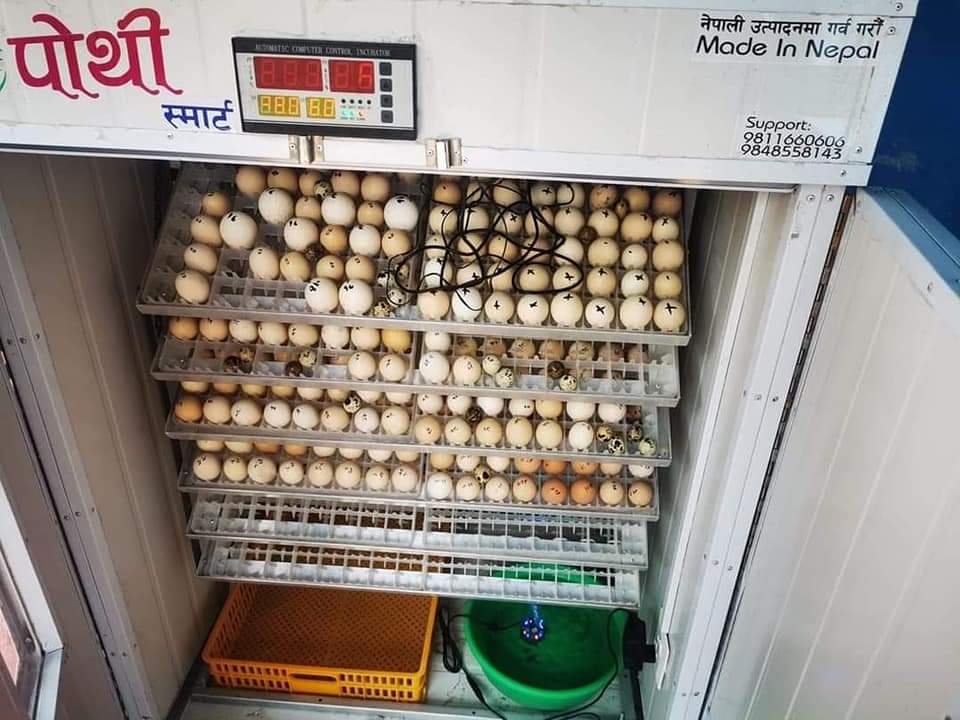
The startup has helped the owner of an ostrich farm in Bhairahawa modify his US-built egg incubator so that it can hatch up to 1,800 eggs at once. Besides, it also conducts real-time monitoring of machines used by the clients using digital technology.
“We can monitor the machines remotely using a mobile app to see if the machines are functioning optimally,” Paudel says. “We developed this system as our clients are based far away from our office.”
The company’s contribution to the country’s poultry sector has not gone unnoticed. Its egg-hatching machine was awarded first prize under the ‘Made in Nepal’ category by Idea Studio, a platform for sharing business ideas.
Pothi Incubator is currently producing four ranges of egg hatching machines. Paudel says a fully automated egg incubator is also in development with the support of the National Innovation Center.
“We now want the government to improve our market access,” Paudel says.



